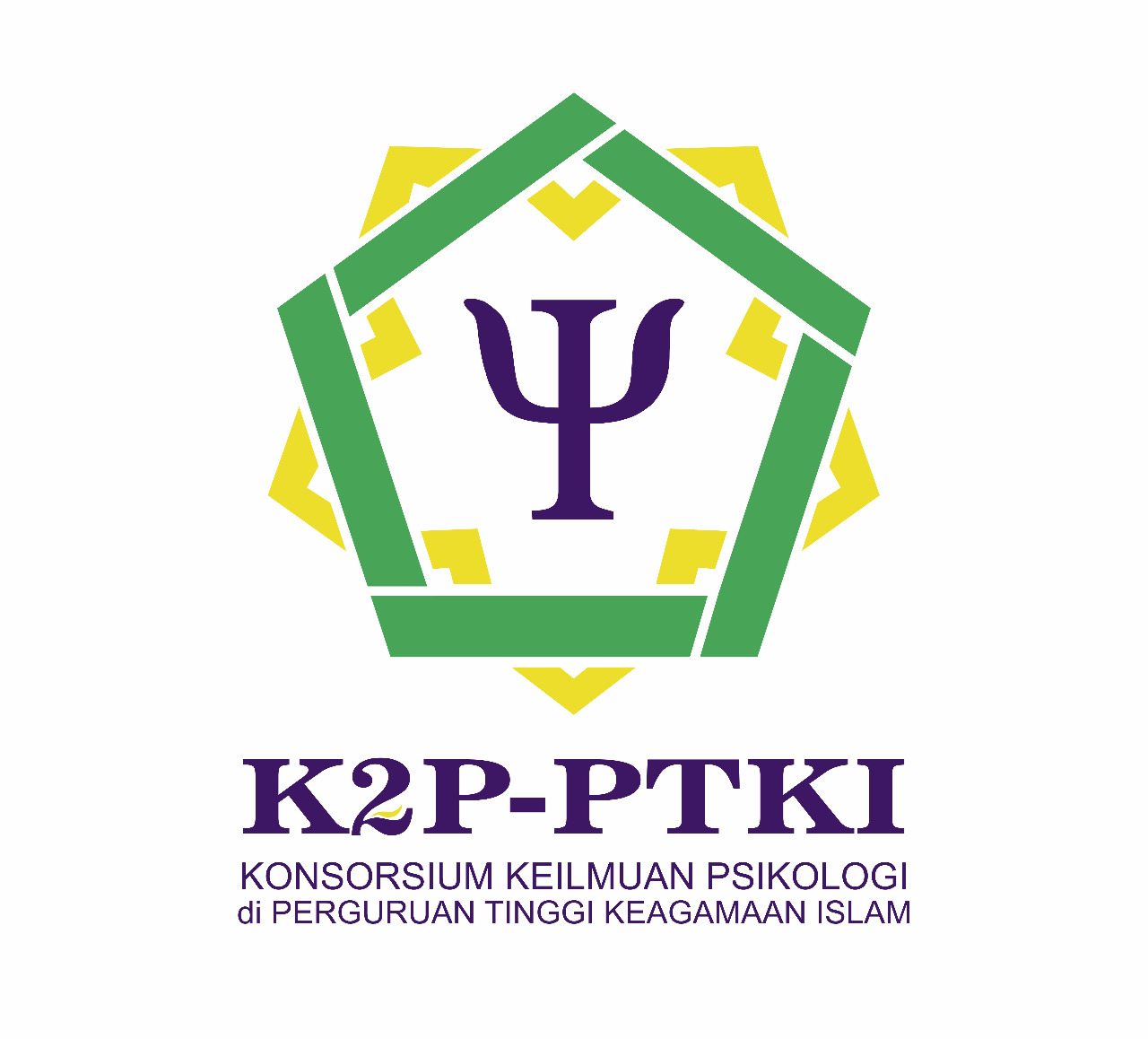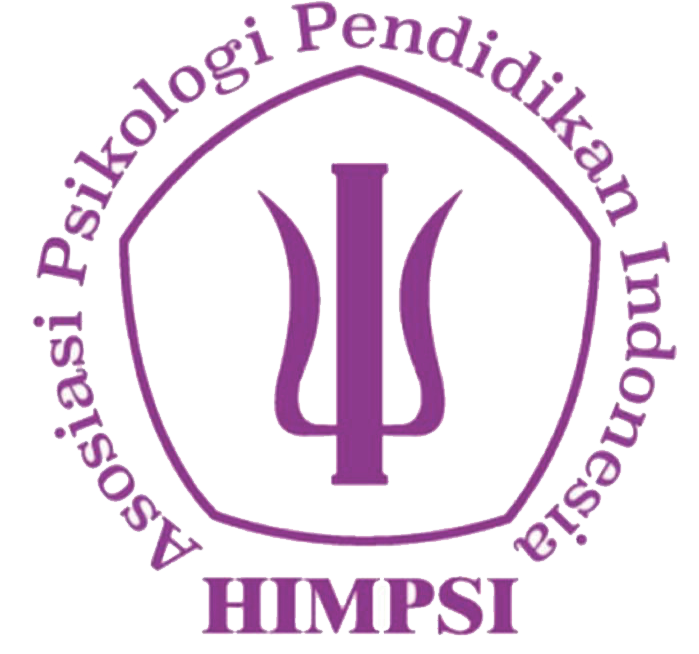Peran regulasi diri belajar terhadap flow akademik pada mahasiswa yang sedang mengerjakan skripsi
Abstract
Abstract: Students often face various obstacles while working on their thesis, which can give them feelings of anxiety, stress, fatigue, boredom, and a sense of being stuck. These negative emotions experienced by students indicate a lack of academic flow during the thesis writing process. This study aims to determine the role of self-regulated learning in academic flow among students who are working on their thesis. The respondents in this study are 201 students who are currently undertaking their thesis in the Faculty of Psychology, Universitas Negeri Makassar. The sampling technique used is simple random sampling, with a simple linear regression hypothesis test. The data on self-regulated learning are collected using the Motivated Strategies for Learning Questionnaire scale developed by Pintrich, Smith, Garcia, and McKeachie (1991) and adapted by the author. The data on academic flow are collected using the Flow Inventory for Student scale created by Yuwanto (2011) and adapted by the author. Based on the analysis, it is found that there is a significant role of self-regulated learning in academic flow. The R-square value of 0.361 indicates that 36.1% of the variance in academic flow can be explained by self-regulated learning. This suggests that higher levels of self-regulated learning are associated with higher levels of academic flow, while lower levels of self-regulated learning are associated with lower levels of academic flow. The implications of this study call for educational institutions to pay attention to students' ability to self-regulate their learning in order to enhance their academic performance.
Keywords: academic flow; self-regulated learning; student
Keywords
Full Text:
PDF (Bahasa Indonesia)References
Aini, A. N., & Mahardayani, I. H. (2017). Hubungan antara kontrol diri dengan prokrastinasi dalam menyelesaikan skripsi pada mahasiswa universitas muria kudus. Jurnal Psikologi Pitutur, 1(2), 65–71.
Arif, I. S. (2016). Psikologi positif: Pendekatan saintifik menuju kebahagiaan. Gramedia Pustaka Utama.
Amira, R. D., & Muhid, A. (2020). Self regulated learning, self-esteem, dukungan sosial dan flow akademik. Indonesian Psychological Research, 2(2), 65–74. https://doi.org/10.29080/ipr.v2i2.393
Bakker, A. B. (2005). Flow among music teachers and their students: The crossover of peak experiences. Journal of Vocational Behavior, 6(1), 26–44. https://doi.org/10.1016/j.jvb.2003.11.001
Chandra, R. I. (2013). Go with the flow: Dukungan sosial dan flow akademik pada mahasiswa. Calyptra: Jurnal Ilmiah Mahasiswa Universitas Surabaya, 2(1), 1–19.
Csikszentmihalyi, M. (2014a). Flow and Education. In Applications of flow in human development and education: The collected works of mihalyi csikszentmihalyi (pp. 173-180). Springer, Dordrecht. https://doi.org/10.1007/978-94-017-9094-9_6
Csikszentmihalyi, M. (2014b). Play and Intrinsic Rewards. In Flow and the foundations of positive psychology: The collected works of mihalyi csikszentmihalyi (pp. 135-153). Springer, Dordrecht. https://doi.org/10.1007/978-94-017-9088-8_10
Csikszentmihalyi, M., Abuhamdeh, S., Nakamura, J. (2014). Flow. In Flow and the foundations of positive psychology: The collected works of mihalyi csikszentmihalyi (pp. 227-238). Springer, Dordrecht. https://doi.org/10.1007/978-94-017-9088-8_15
Csikszentmihalyi, M., & Rathunde, K. (2014). The development of the person: An experiential perspective on the ontogenesis of psychological complexity. In Applications of flow in human development and education: The collected works of mihalyi csikszentmihalyi (pp. 7-79). Springer, Dordrecht. https://doi.org/10.1007/978-94-017-9094-9_2
Farah, M., Suharsono, Y., & Prasetyaningrum, S. (2019). Konsep diri dengan regulasi diri dalam belajar pada siswa sma. Jurnal Ilmiah Psikologi Terapan, 7(2), 171–183. https://doi.org/10.22219/jipt.v7i2.8243
Firdaus, A. R. F. (2020). Hubungan flow akademik dengan self-efficacy pada mahasiswa pendidikan dokter angkatan 2016 UIN Malang yang sedang mengerjakan skripsi. [Skripsi, Universitas Islam Negeri Maulana Malik Ibrahim Malang]. Etheses of Maulana Malik Ibrahim State Islamic University.
Gatari, A. (2020). Hubungan stres akademik dengan flow akademik pada mahasiswa. Cognicia, 8(1), 79-89. https://doi.org/10.22219/cognicia.v8i1.11739
Hariwijaya, M. (2017). Metodologi dan teknik penulisan skripsi, tesis & disertasi untuk ilmu-ilmu Sosial dan humaniora. Diandra Kreatif.
Hidayati, N., & Aulia, L. A. A. (2019). Flow akademik dan prokrastinasi akademik. Jurnal Psikologi: Jurnal Ilmiah Fakultas Yudharta Pasuruan, 6(2), 128-144
Joo, Y. J., Joung, S., & Kim, J. (2014). Structural relationships among self-regulated learning, learning flow, satisfaction, and learning persistence in cyber universities. Interactive Learning Environments, 22(6), 752–770. http://dx.doi.org/10.1080/10494820.2012.745421
Kriswanti, E. D., & Mastuti, E. (2021). Hubungan antara kemampuan self-regulated learning dengan flow experience perkuliahan daring selama masa pandemi covid-19. Buletin Riset Psikologi dan Kesehatan Mental, 1(1), 746-755.
Linawati., & Drianus, O. (2020). Self-Regulation and Self-Efficacy on Flow/ Optimal Experience of Early Chilhood’S Teacher. Psychosophia: Journal of Psychology, Religion, and Humanity, 1(2), 99–120. https://doi.org/10.32923/psc.v1i2.877
Malau, D. I. Y., Sandayanti, V., & Eksa, D. R. (2020). Hubungan kecemasan mengerjakan tugas dengan regulasi diri dalam belajar pada mahasiswa fakultas kedokteran universitas malahayati tahun 2019. Jurnal Psikologi Universitas HKBP Nommensen, 7(1), 1-10. https://doi.org/10.36655/psikologi.v7i1.183
Marfungah, H. N., & Hidayah, N. (2020). Hubungan antara iklim kelas dan self regulated learning dengan flow akademik pada siswa sekolah menengah pertama. [Skripsi, Universitas Ahmad Dahlan. http://eprints.uad.ac.id/id/eprint/17227
Markamad, A., & Khuzaemah. (2019, Agustus). Faktor-faktor yang mempengaruhi flow akademik. [Prosiding]. Seminar Nasional Magister Psikologi Universitas Ahmad Dahlan.
Mayangsari, D. M., & Pratiwi, D. S. (2019). Flow akademik pada mahasiswa yang aktif berorganisasi dan bekerja (academic flows in students active organization and working). Psycho Holistic, 1(2), 47–52.
Nakamura, J., & Csikszentmihalyi, M. (2009). Flow theory and research. In C. R., & Lopez, S. J. (Eds.), Oxford handbook of positive psychology (hlm. 195-206). Oxforfd University Press.
Nizamuddin, S. E. M. S. (2020). Penelitian berbasis tesis dan skripsi disertai aplikasi dan pendekatan analisis jalur. Pantera Publishing.
Park, J., & Seo, M. (2022). Influencing factors on nursing students’ learning flow during the COVID-19 pandemic: A mixed method research. Asian Nursing Research, 16(1), 35-44. https://doi.org/10.1016/j.anr.2021.12.006
Pintrich, P. R., Smith, D. A. F.,Garcia, T., and McKeachie, W. J. (1991). A Manual for the Use of the Motivated Strategies for Learning Questionnaire (MSLQ). The University of Michigan, Ann Arbor, Michigan.
Pintrich, P. R. (2000). The role of goal orientation in self-regulated learning. In: Boekarts, M., Pintrich, P. R., & Zeidner, M. (Eds.), Handbook of Self-Regulation (pp. 451–502) Academic Press.
Pintrich, P. R. (2004). A Conceptual Framework for Assessing Motivation and Self-Regulated Learning in College Students. Educational Psychology Review, 16(4), 385–407. https://doi.org/10.1007/s10648-004-0006-x
Pradana, A. S., & Putri, D. E. (2019). Flow experience dan prokrastinasi akademik pada mahasiswa. Jurnal Psikologi, 12(1), 44-56. https://doi.org/10.35760/psi.2019.v12i1.1915
Rahma, K. A., & Affandi, G. R. (2022). The Relationship Between Academic Regulation And Academic Flow In Junior High School Students. Academia Open, 6, 1-13. https://doi.org/10.21070/acopen.6.2022.2693
Sumaya, I. C., & Darling, E. (2018). Procrastination, flow, and academic per-formance in real time using the experience sampling method. The Journal of Genetic Psychology, 179(3), 123–131. https://doi.org/10.1080/00221325.2018.1449097
Wan, Q., Liu, M., Gao, B., Chang, T., & Huang, R. (Juli, 2020). The Relationship between Self-regulation and Flow Experience in Online Learning: A Case Study of Global Competition on Design for Future Education. [Konferensi] The 2020 IEEE 20th International Conference on Advanced Learning Technologies (ICALT). https://doi.org/10.1109/ICALT49669.2020.00116
Wati, S., & Firman, F. (2018). Hubungan Self Regulated Learning dengan Flow Akademik Siswa. Jurnal Neo Konseling, 1–6
Yuwanto, L. (2011). The flow inventory for student: validation of the LIS. Anima, Indonesian Psychological Journal, 26(4), 281-286.
Yuwanto, L. (2018). Academic Flow and Cyberloafing. Psychology Research, 8(4), 173–177. https://doi.org/10.17265/2159-5542/2018.04.006
Zimmerman, B. J. (1990). Self-regulated learning and academic achievement: An overview Educational Psychologist, 25(1), 3–17. https://doi.org/10.1207/s15326985ep2501_2
Zimmerman, B. J. (2000). Attaining self-regulation: A social cognitive perspective. In Boekarts, M., Pintrich, P. R., & Zeidner, M. (Eds.), Handbook of self-regulation (hlm. 13–39) Academic Press.
DOI: https://doi.org/10.18860/psikoislamika.v20i1.18077

This work is licensed under a Creative Commons Attribution-NonCommercial-ShareAlike 4.0 International License.

------------------------------------------------------------------------------------------

pSIKOISLAMIKA by http://ejournal.uin-malang.ac.id/index.php/psiko is licensed under a Creative Commons Attribution-NonCommercial-ShareAlike 4.0 International License.


.jpg)


.jpg)





